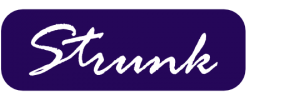Use ODP Manager to Inform Customers about Reg E Opt-In
On consumer accounts, ATM and everyday debit card transactions cannot be included in Overdraft Privilege unless the customer has opted in. Customers can opt in for Reg E at account opening but they may also opt in later. The four options to opt in for the ATM and everyday debit card coverage are: in person at a branch, over the phone, by mail, or electronically.
The Consent Form for Overdraft Services (A-9 form) informs customers about what they need to know about overdrafts and overdraft fees. It also reiterates a customer’s options for opting in and provides them the form to submit by mail. ODP Manager allows institutions to provide an account’s Regulation E Opt-in Status in the file that is imported daily. This allows the hosted software to send different letter templates to customers who have opted in or not opted in for the ATM and everyday debit card coverage.
Strunk’s standard letter templates for the Welcome and Reinstatement letters include the A-9 form for customers who have not already opted in. The Reg E Opt-in Followup Letter template is also provided so that customers with OD limits that have not opted in receive information about ATM and everyday debit card coverage opt-in at least once a year. If a customer has already opted in, their letters highlight that they already have the ATM and everyday debit card coverage. By allowing customers the Reg E opt-in information when overdraft limits are assigned, when overdraft limits are reinstated, or annually, ODP Manager may allow customers to have more opportunities to opt in for Reg E.
ODP Manager can also allow customers to submit their Reg E Opt-in election electronically. Strunk would create an online form that mirrors an institution’s A-9 form. This form would then be linked directly from an institution’s website. Email confirmations are generated when forms are submitted. The submissions are tracked in ODP Manager so that users can generate a list of accounts that need an updated Reg E election.
If you have any questions about the Reg E Opt-in form options in hosted ODP Manager, please contact Strunk Support at support@strunkaccess.com to find out more.


